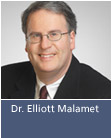 |
||||||||||||
| Weekly Parsha | ||
| Business Ethics | ||
| Dr. Malamet Speaks Out | ||
| Current Article | ||
| Archives | ||
| TiM MP3 Library | ||




Dr. Malamet Speaks Out
|
 The Canadian writer Margaret Atwood once recounted a conversation that she had at a dinner party in which she was asked her vocation by another guest, who offered that he was a neurosurgeon. When Atwood revealed her identity, the man smiled broadly and said, "I think I'll try writing novels after I retire," as though nothing could be simpler. "Oh really," Atwood replied coyly. "Because I was thinking that after I finish with producing fiction, I'd try my hand at neurosurgery." We live in a culture that often belittles teachers, sometimes with gentle chiding and sometimes with out and out contempt. The implication of much of the rhetoric surrounding the profession of education is that it is a domain for those who could not succeed elsewhere. Besides, how difficult could it be to tell kids how to do fractions and read Catcher in the Rye ? Anyone could do it, right? All the moreso is this mindset applied to Jewish education. It is a profession that is respected in theory and trashed in practice. Whether it is rabbis in ultra-Orthodox schools whose paycheques are often long overdue, or afternoon school teachers who are seen as babysitters in the lion's den, the discordance between an ostensible respect for Jewish education and the true facts of the matter are ever widening. In the range of professions that Jewish parents desire for their kids, does becoming a Jewish educator ever make the top ten? Does it rank at all? Would not a secret shudder roll down Dad's spine if, say, his son opted out of medical school to become a teacher of Rashi and Rambam? The reader will object with the oft-used canard that "we encourage our children to be whatever they desire and accept their choices." But this paragon of liberal tolerance avoids the fact that children absorb quickly the values of their parents in all areas, including what kind of jobs would be acceptable. In those parts of the Jewish world--and this generally works in direct proportion to Torah observance--where learning Torah is seen not just as a means to an end, but rather as an end in itself, the children will associate the teaching of Torah with honour and ultimate importance. It is the dissemination of God's word and the backbone of the Jewish people's survival. But in our often assimilated Jewish reality of today, Jewish education is not viewed as a fit profession for our children, whose destiny lies in jobs where money is the axis around which all other considerations revolve. And as we all know, money is not the great enticement in Jewish education. Hence one could rehearse the circularity of the dilemma which spins inside of a parent's brain: "I'd be sanguine with my child becoming a Jewish educator if there was some money in it, but of course I don't really think Jewish educators should be as well paid as other professionals." The inexorable and bitterly ironic conclusion to all this is that we often bemoan the quality of the Jewish education that our children receive. If only they had better teachers! If only it weren't so dull! And no connection is made between these thoughts and the other parts of the pedagogical puzzle. "I saw the best minds of my generation destroyed by madness," raged Alan Ginsberg in "Howl," words which many years later tragically resonate for anyone interested in the future of Jewish education. Where are the best minds of our generation? Jewish children everywhere await you with open souls. Serious applicants only. |
|
|

 |
 |